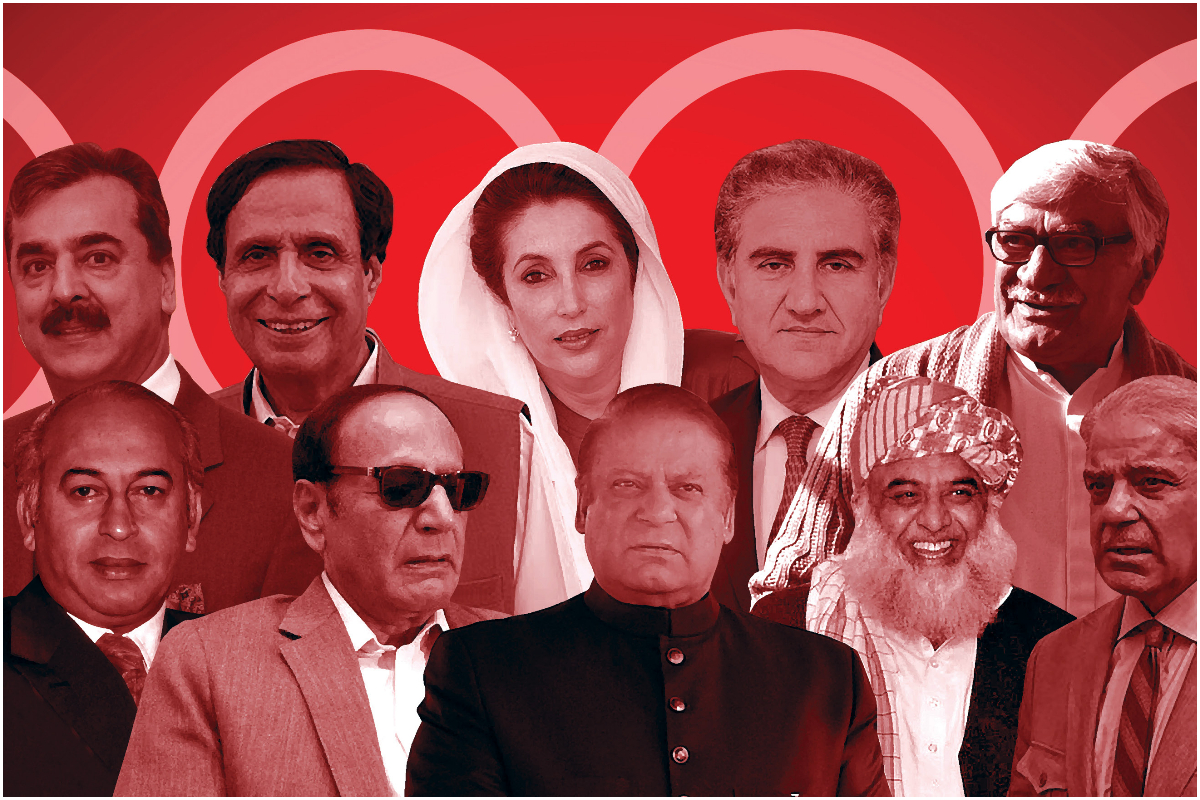
A Bad Precedent
Why dynastic politics is still in vogue in 21st century Pakistan
KARACHI: In Pakistan, politicians generally have a tendency to treat their constituencies and parties as their fiefdoms, which their successors inherit like a private property after their demise or retirement.
Like monarchs, our political leaders also generally appoint their heirs apparent – their wives, sons, daughters, sons- or daughters-in-law or grandchildren – often without even consulting the senior members of their parties.
In some cases, this irks a party’s leadership and workers alike but mostly they bow down to the supreme leader’s decision rather than questioning it.
This tendency, however, raises questions about democracy within political parties as this blatant display of nepotism makes a mockery of the true values of a democratic system.
Pakistani politics is dominated by a few individuals – like Zulfikar Ali Bhutto, Nawaz and Shehbaz Sharif, Yousuf Raza Gilani, Shah Mahmood Qureshi, Abdul Ghaffar Khan, Maulana Fazlur Rehman, Chaudhry Shujaat Hussain, Parvez Elahi – or their family members.
Then there are sons and grandsons of former military dictators, who are actively participating in politics.
Ijaz Ul Haq is the son of General Ziaul Haq, a four-star general who became the sixth president of the country following a coup and declaration of a martial law in 1977.
Omer Ayub Khan is the grandson of General Ayub Khan, the second president of Pakistan, who seized the presidency from Iskander Mirza in a coup in 1958.
Humayun Akhter Khan is son of Akhtar Abdur Rahman Khan, who was a senior army general who served as the 5th Chairman of the Joint Chiefs of Staff Committee of from 1987 to 1988 and also served as the seventh director general of the Inter-Services Intelligence (ISI) from 1979 to 1987.
At present, the political landscape in Pakistan is mainly dominated by three parties – the Pakistan Muslim League (PML-N), the Pakistan Peoples Party (PPP) and the Pakistan Tehreek-e-Insaf (PTI).
However, the resolution of Pakistan’s economic problems depend on the reshaping of politics as political advancement largely depends on the development of political parties. Without politically developed parties, the system would not evolve.
In developed countries – like the US, the UK and China – political parties instead of giving preference to the family members and relatives of party leaders give chance to people who have vision, commitment and political acumen.
Interestingly, dynastic politics has also been in vogue in India. However, now it has a far more developed political culture than Pakistan.
In Pakistan, dynasties are not limited to politics.
Our corporate world also comprises dynasties—organizations whose founders and owners hire their family members to run the affairs of their companies.
However, corporate leaders at least do not profess to champion democracy like politicians.
The corporate sector is also prone to favouritism.
It has been observed that many organizations and companies appoint staff based on references, personal preferences and nepotism.
This situation makes it difficult for fresh graduates and professionals who lack connections to find an appropriate job, often leading to hopelessness, depression and rise in criminal activities. This corporate culture of nepotism encourages young people to try to form and use connections rather than focusing on getting their degrees and honing their talents.
This issue requires immediate attention as the potential of our talented people is put to waste because of nepotism—something that is also resulting in low productivity and lack of development and progress.
Nepotism is the result of an extremely strong tribal or clan mentality. The people at the helm of affairs do not implement the laws in their true spirit. Had they placed importance in rules and regulations, favoritism would not have stood a chance.
Unfortunately, everyone talks about equality and welfare of the masses in their drawing rooms and calls for the provision of justice to all but never bothers to make efforts for the same
Rather in many cases these bigwigs are found indulged in anti-people policies. Who is responsible for such a behavior? It seems nepotism has become a norm.
The system has become highly corrupt, leading to a rise in criminal activities, especially in the business hub of Karachi, where people’s lives are at stake.
Nepotism has been part of our system since day one. It plays havoc with the progress of the country, especially its economic growth and has become a nuisance for the nation. The politicians must stop promoting nepotism in the country so that the rights of the talented people can be protected.
We, as a nation, also have to stand up against this undemocratic behavior of our politicians and fight for our rights. There should be a clear mechanism and a uniform procedure for appointments, whether in a political party or a corporate organization to prevent such practices.
Favouritism is absolutely unjust and unfair. It is also an ailment, which destroys nations, as it provides opportunities to those who do not deserve to be at the helm and creates a sense of deprivation among those who are not only honest, talented, competent but also skilled.
Catch all the National Nerve News, Breaking News Event and Latest News Updates on The BOL News
Download The BOL News App to get the Daily News Update & Live News.












 Read the complete story text.
Read the complete story text. Listen to audio of the story.
Listen to audio of the story.